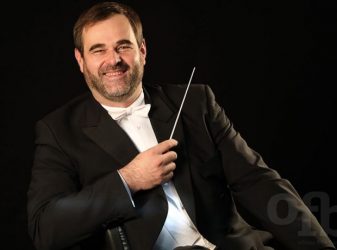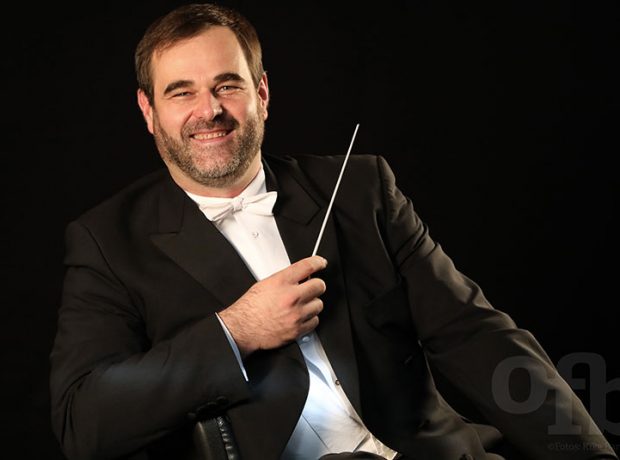 Germany Beethoven: Dresden Festival Orchestra / Josep Caballé Domenech (conductor). 12.9.2020 performance from Löwensaal, Dresden, reviewed when streamed live on Dreamstage. (LV)
Germany Beethoven: Dresden Festival Orchestra / Josep Caballé Domenech (conductor). 12.9.2020 performance from Löwensaal, Dresden, reviewed when streamed live on Dreamstage. (LV)

Beethoven – Symphony No.1 in C major, Op.21; Symphony No.2 in D major, Op.36
Playing in an intimate concert hall about the size of one in Beethoven’s time, the 35 members of the Dresden Festival Orchestra, playing on instruments from Beethoven’s time and tuned to 430, played the composer’s first two Symphonies live on Dreamstage.
The sound came forth startlingly at first with the orchestra playing at its gentler pitch, the softer winds and brass, the amplitude and vigour without being brash, the clarity without any loss of warmth. In the DFO’s view Beethoven does not need heavily stylized authentic performances to make the point, just the right instruments, the right players and a sympathetic conductor. You get the feeling that Beethoven’s instrumentalists would have approached the music like this.
After a lovely regal Adagio molto conductor Caballé Domenech fashioned a kittenish lick into a moderately fast Allegro con brio energized by the élan of the dotted-note upbeats that abound. The Andante cantabile had more of a feeling that Beethoven was writing music that needed simply to be beautiful. The little fugue with its naughty take on academic propriety was studded with glowing woodwind riffs.
The Menuetto was bright and excursive, with full-throated trumpets and horns, and the timpani marvellously in tune if slightly soft. Caballé Domenech held the joke in the Adagio introduction to the finale just long enough before letting concertmaster Alexander Janiczek and the violins go. Having thoroughly exhausted all possibilities, the DFO gathered itself to make the kind of gloriously martial sounds that made the Second Symphony following on its heels seem like the logical conclusion.
In fact, their playing in the Adagio molto introduction to the Second Symphony showed how much Beethoven was increasingly getting a feel for the distinctive colours woodwinds could provide, from rustic to hallucinogenic, and for how legato the strings could sing. The sense of anticipation leading into the Allegro con brio was tangible and it burst forth as if it were announcing an antidote to the Heiligenstadt Testament. The perky upbeat to the march theme was just right and when the dissonances sorted themselves towards leading to the triumphant end, the martial ambience was exhilarating.
After Caballé Domenech and the DFO solved the problem of making the Larghetto‘s beauty neither too serious nor too coy, all concerned seemed to run out of steam in a Scherzo that was scrappy at times, with a surprisingly unseductive Trio, they recovered for an Allegro molto that was, even if not quite molto, smooth, powerful sailing all the way.
Laurence Vittes
For more about the Dresden Festival Orchestra click here.
